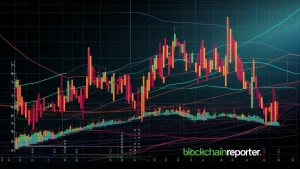
The diffusion of “power” has been an attractive selling point for cryptocurrencies. Bitcoin has especially gained a huge following and is now worth billions of dollars. Its native currency, BTC, is presently changing hands at over $9,000. Analysts pinning their predictions on price models, expect BTC to print new highs in years to come.
With great valuations comes the natural need to hold and even speculate on prices. This draws two types of enthusiasts: developers, and price speculators. The former comprise true believers, unfazed by price action. However, the latter have no allegiance and just want to make money.
What Is a Cryptocurrency Exchange?
For coins to change hands, there must be a market place. Here, a willing buyer digitally meets a seller and trade at spot prices for cash or other coins.
Platforms called cryptocurrency exchanges have sprung up to meet the rising demand.
A digital currency exchange (DCE) is an online platform where a user can exchange one digital asset for another or fiat. They act like traditional exchanges with order matching and filling on top of market-making and custody.
The blend of all these four roles makes the running of a cryptocurrency exchange a complex but lucrative business.
There are two main types of cryptocurrency exchanges. The most common are centralized versions. in this arrangement, orders are matched and executed off-the blockchain. Binance, Coinbase Pro, or BitMex, are examples. Coins are traded with the exchange acting as a middleman for a small fee.
They may be fast and scalable but their main weakness is their susceptibility. Over time, billions have been lost from centralized cryptocurrency exchanges because of high-profile hacks.
Decentralized Exchange: Security and Control
Another variant is the decentralized cryptocurrency exchange or a DEX.
These exchanges are peer-to-peer, facilitating the trade of cryptocurrencies without the middleman. They also don’t take custody of user funds.
They can also be defined as exchanges run on code (smart contracts). As such, a decentralized exchange can only run from a smart contract-enabled platform like EOS or Ethereum.
The blockchain the exchange dApp runs on directly determines the type of tokens and number of coins supported.
DEXes use the processing speed of the blockchain to match orders and execute transactions without a middleman through smart contracts.
Consequently, all DEX’s trades must be recorded on the blockchain and are therefore transparent and immutable.
Why Decentralized Exchanges Are Becoming Popular
A decentralized exchange is also more secure because funds are controlled by the owner.
In exchange for security and privacy, it is generally more complex to navigate around a DEX’s user interface. Furthermore, the speed of transaction execution depends on the blockchain’s throughput.
A DEX based on Ethereum with its order book on the blockchain (not off-chain) will only process as many transactions depending on the network’s block-generation time.
For compliance, fiat transactions are not possible in DEXes. Reason being that the issuance of fiat requires a trusted middle man. Furthermore, the need to record account balances may adherence to Know-Your-Customer (KYC) rules.
Two Ways of Executing Transactions Trustlessly
There are two ways crypto transactions can be executed.
For DEXes are completely peer-to-peer, it is easy to set up and accomplish a transaction where the traded coins and tokens are recorded on the same blockchain.
Through tokenization, a DEX based on Ethereum will be easier to set up if it facilitates the transfer of coins and tokens based on the Ethereum blockchain. This is so because all transactions are recorded on the same ledger making transaction reconciliation easy.
Nonetheless, this is not to say peer-to-peer transaction between two independent blockchains isn’t possible.
Cross-chain atomic swaps have enabled people to change coins trustlessly.
Advantages of DEXes
Trading from a DEX has the following advantages:
- Trades are secure because all transactions are recorded on the blockchain and the user has full control of funds. The transfer is also peer-to-peer executed between two parties. As more people trade cryptocurrencies, DEXes will not only be easier with intuitive user interfaces but with security, their trading volumes will invariably improve.
- Users have full control of funds. DEXes are non-custodial and risks of the exchange freezing a user wallet or demanding KYC for token exchange is rare. If an exchange goes down, your funds remain secure.
- There is privacy since beyond providing a wallet address, traders don’t submit personal details during signup.
- They drive financial inclusion and everyone regardless of location can trade cryptocurrencies and their derivatives. Residents from the United States, China, or Japan, for instance, can’t be barred from participating due to changes in local laws as in the case with centralized exchanges. Here, coins are under the custody of the user who in turn can cheaply trade them for other coins/token at any point in time.
Top 4 Decentralized Exchanges
After reviewing different DEXes based on key metrics as liquidity, trading volumes, fees, supported coins and tokens, and Know-Your-Customer (KYC) requirements, the advantages and disadvantages of decentralization become clearer.
In no particular order, these are the top four DEXes:
1. UniSwap
This is an Ethereum-based exchange where traders can trustlessly swap ERC-20 tokens and Ether (ETH). The dapp is completely on-chain meaning the exchange’s liquidity—which enables the smooth and seamless transfer of tokens, is publicly visible and secured by the Ethereum miners.
Distinctively, UniSwap doesn’t maintain an order book. Instead, tokens change hands via a liquidity reserve supplied by the network’s liquidity providers. This liquidity reserve is controlled via an exchange smart contract and is regularly checked by the protocol’s minting of ERC-20 compliant liquidity tokens.
Arbitrage trading is also a big part of UniSwap and is a tool that corrects any skew of token/ETH price.
There is no registration and to participate, one must own MetaMask—a browser wallet that supports ETH and its tokens.
2. Binance DEX
This decentralized exchange is based on the Binance Chain.
It facilitates the peer-to-peer transfer of Binance Chain tokens (BEP-2 tokens) and BNB.
A major difference is that the Binance DEX has a fast order matching engine and the founder and CEO of Binance, Changpeng Zhao claims that the exchange is robust enough to handle the same volume as its centralized version.
Each order is executed after every block. A block is generated every second with near-instant transaction finality.
3. Kyber Network
This is an Ethereum-based exchange where traders can exchange ERC-20 tokens with other cryptocurrencies including Bitcoin and ZCash.
Token and coin transfers are on-chain without the use of an order book. For liquidity—which is the ability to exchange tokens, Kyber Network uses the Dynamic Reserve Pool which contains all reserve entities (with different cryptocurrencies) within the system to prevent monopolization and to keep rates competitive.
There is no registration and funds are controlled by the user.
4. IDEX
A popular Ethereum-based exchange, IDEX supports over 250 token pairs.
To trade, a user connects to the exchange through the MetaMask Wallet, a Ledger Nano S, or by manually entering the private keys. It boasts of high liquidity and its order book is updated in real-time. As such, IDEX matches orders quickly and efficiently.
Frequently Asked Questions
What is a decentralized exchange (DEX) and how does it work?
A decentralized exchange (DEX) is a peer-to-peer platform that allows users to trade cryptocurrencies directly without intermediaries. It operates via smart contracts on blockchain networks like Ethereum, ensuring that trades are secure, transparent, and recorded on-chain.
How are DEXes different from centralized exchanges?
Centralized exchanges manage custody of user funds and match trades off-chain, offering speed and ease of use. DEXes, on the other hand, are non-custodial and process trades on-chain, providing greater security and privacy but often with a steeper learning curve.
What are the advantages of using a DEX?
DEXes offer full user control over funds, increased privacy, transparency through on-chain transactions, and resistance to censorship or local regulations. Users don’t need to complete KYC processes, and funds remain safe even if the platform goes offline.
Can DEXes support cross-chain cryptocurrency trades?
Yes, some DEXes utilize technologies like atomic swaps to enable trustless trading between coins on different blockchains, although this is more complex and less common than single-chain token swaps.
What are some of the top decentralized exchanges available today?
Top DEXes include Uniswap (Ethereum-based, uses liquidity pools), Binance DEX (built on Binance Chain), Kyber Network (on-chain liquidity network), and IDEX (real-time order matching on Ethereum). Each offers unique features and supports different tokens and trading models.









